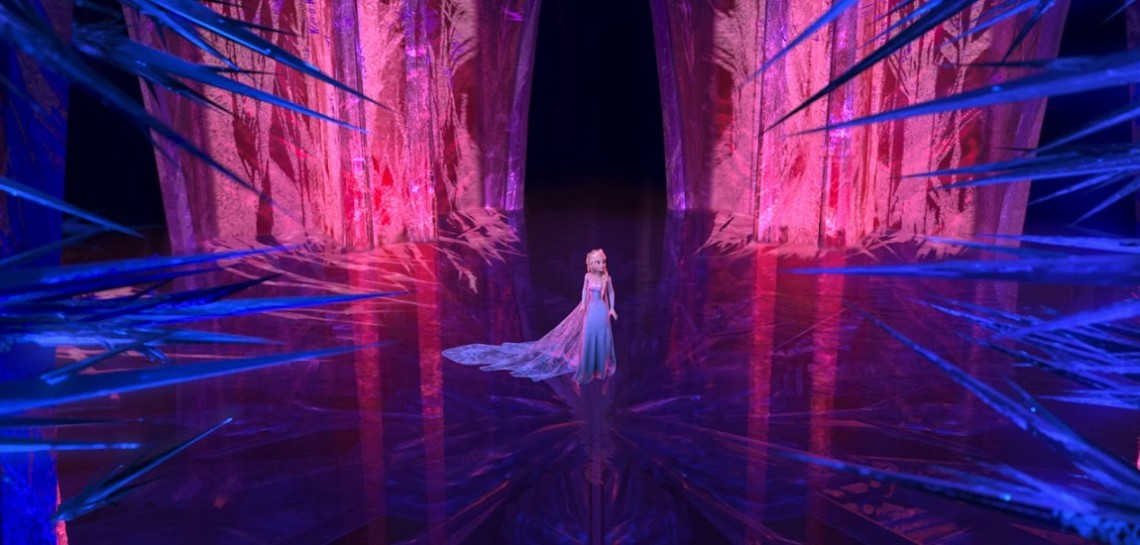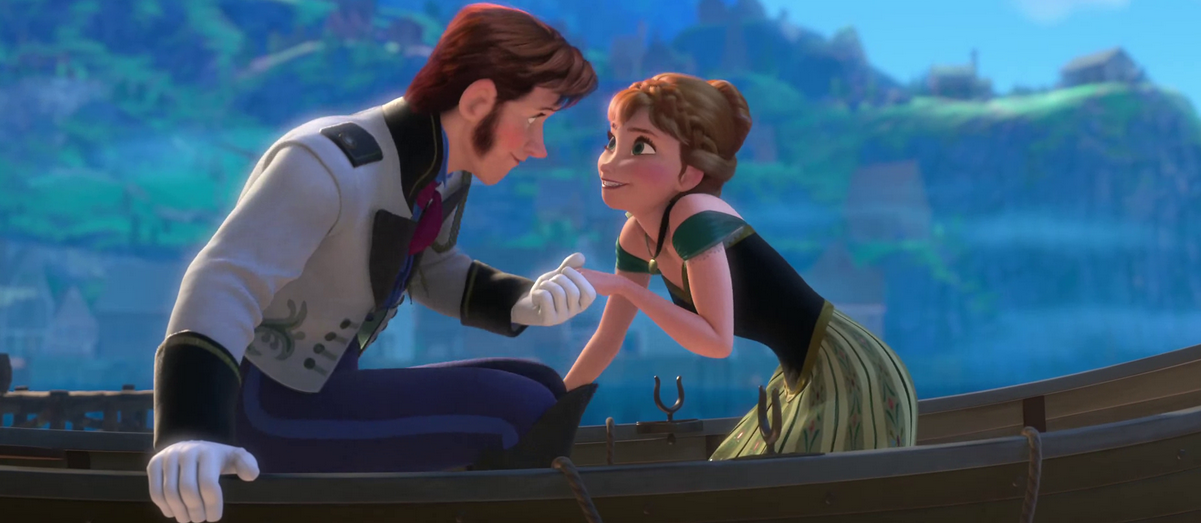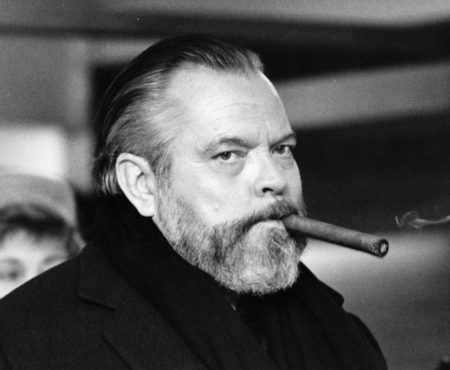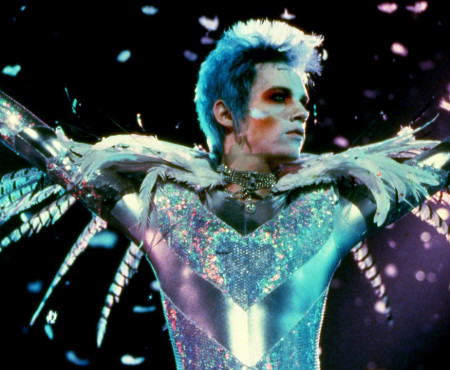Editor’s note: Today, we’re proud to present readers with an exclusive passage from Josh Spiegel’s book Yesterday is Forever: Nostalgia and Pixar Animation Studios. Be sure to pick up the book up now that it’s available for purchase from The Critical Press.
There’s not a clear reason why Frozen became such a phenomenon. The way Disney initially marketed the film, leaning hard on Olaf the talking snowman instead of the songs or the sisterly bond, suggests that they were caught equally off guard. Like Tangled, it’s a loose adaptation of a female-centric fairy tale that was renamed to de-emphasize femininity and lure in a male audience. Like Tangled, it’s full of songs that owe a clear debt to Broadway not only in terms of who wrote them, but also the modernized slang littering the lyrics. As with Tangled, there’s a curse at the center of the story and a fractious relationship between two women, the older of whom hides the younger one from the vagaries of the real world for as long as possible, intentionally or not. And like Tangled, Frozen is heavily indebted to the princess films of the past, trying to achieve a level of winking self-awareness about the genre’s tropes while embracing them wholeheartedly and diving straight into an infinite pool of nostalgia.
“You mean to tell me you got engaged to someone you just met?” is the in-film critique of the classical Disney princess movie, posed as an incredulous question by Kristoff, the friendly iceman who falls in love with the person he’s mocking over a few days instead of one night. Frozen is the latest in a slew of self-reflexive films and TV shows in the twenty-first century which skewer old-fashioned storytelling clichés, only to run back to them when necessary. If there’s a problem with Frozen’s relationship with nostalgia, it’s that it feels superfluous, a grafted-on section of a too-thin story, a sop to fans of the old way who are still wary of Disney’s new direction. The kind-of, sort-of love triangle between Anna, her presumed beau, Prince Hans of the Southern Isles, and Kristoff is an extraneous subplot attached to an arguably more powerful and affecting tale of two sisters struggling to reach common ground after suffering through familial tragedy.
However, because the original concept—one where, as detailed by Disney blogger Jim Hill, Elsa’s embrace of her magical powers is more antagonistic—was discarded over decades of production and development, the film demands a clear-cut bad guy and an equally clear-cut good guy, in the most literal sense. While it’s true that Frozen plays fair with its sole twist, the abrupt revelation is unnecessary, just like Kristoff’s valiant effort to save Anna from the clutches of the ice curse she’s suffering from. The relationship that matters in Frozen is between Anna and Elsa, which is ironically not deepened as much as it could be—as grown-ups, they spend maybe fifteen minutes of screen time together, in part because Anna teams up with Kristoff while Elsa stays in her self-created ice castle alone. For a movie built on a feminine foundation, Frozen backs off on exploring its sibling relationship whenever possible.
It’s especially fascinating to consider where Frozen stumbles in its treatment of female familial relationships when comparing it to Pixar’s first female-led film, 2012’s Brave. Like Frozen, Brave is a modern take on old-fashioned fairy tales; like Anna and Elsa, Merida doesn’t end up with a man by the closing credits. But Brave is, in spite of its well-documented production upheavals, fully committed to depicting a mother-daughter relationship without any male intrusion. Brave is a messy film by Pixar’s standards—it’s the rare case where the behind-the-scenes shakeups seem evident in the up-and-down tone—but as Pixar’s sole entry in the Disney Princess canon, its femininity is more confident and honest than that of Frozen.
Frozen is more concerned with the nebulous concept of romantic, not sisterly, love. Because Anna and Kristoff set off on a quest to stop Elsa, it means Kristoff gets to tell her about his knowledge of love, informed by “the love experts,” revealed to be his surrogate family of rock-shaped trolls, who instantly presume these two are due to get married. The subsequent scene, centered on the film’s least memorable song, “Fixer Upper,” deflates any notion of this movie standing apart from The Little Mermaid or even Beauty and the Beast, the latter of which does feature the title characters learning to know each other before falling in love. We may be encouraged to laugh at the trolls’ antics, but the way Anna smiles and laughs as she sees how Kristoff is dressed by his troll family, and the way he realizes his own feelings as the trolls continue to sing, aren’t as easily dismissed. In the span of a single song, love becomes the only logical end for this duo.
To suggest that you can’t logically fall in love with someone in a few hours because you don’t know his or her personal flaws makes perfect sense. Mindless love at first sight is a frequent trope that rears its head from Snow White and the Seven Dwarfs all the way up to The Little Mermaid. Frozen comes close to directly opposing these examples; the film doesn’t end with Anna and Kristoff being married, and Elsa is never depicted as having sexual interest in men, nor is she pushed to marry someone to share her kingdom. But Anna, scolded by her sister as well as a total stranger who happens to be handsome and in her age range, is not as self-reliant as she purports to be. She’s the latest in a long line of modern romantic-comedy heroines, the klutz; she’s a spiritual sister to Rapunzel. One of the first times we see the adult Anna (after she completes the mournful second half of “Do You Want to Build a Snowman?”), she’s rudely woken up on the day of her sister’s coronation. Her hair is cartoonishly akimbo and stuck-up, and she’s snoring and drooling to boot. And when she first meets Prince Hans, it’s because his horse knocks her into a boat; she then stumbles over her words: “This is awkward. Not you’re awkward, but just because we’re—I’m awkward. You’re gorgeous. Wait, what?”
Anna is, in this respect, roughly as incapable a heroine as Snow White or Cinderella or even Ariel; the difference is her twenty-first-century sense of self-awareness. She’s smart enough to know that she needs Kristoff’s help, but she’s otherwise as unable to achieve most basic goals without someone’s aid. Anna is closer to a post-feminist Disney princess, but the feminism on which she was created is shaky at best. She falls in line with the analysis by Cassandra Stover of the University of Southern California: “Just because a princess is no longer ‘wishing for the one she loves to find her,’ as Snow White does, she is not necessarily now wishing for anything grander than finding him herself.” At face value, Frozen is a glib rejoinder, as Elsa and Kristoff both scoff at the notion that anyone could fall in love as quickly as Anna. But Kristoff’s love grows roughly as fast. When Anna realizes this mountain man harbors romantic feelings for her, her spirit appears to lift her off the ground even as she’s suffering from the ice curse.
Here, and elsewhere, Frozen echoes its predecessors. Hans is a modernized Gaston, an impossibly good-looking guy who attempts to wield power by vicious force; Elsa and Anna are reflective of Ursula and Ariel, with the former’s magical power wielding dominion over the latter; Kristoff is partly akin to Aladdin, a poor but enthusiastic young man whose sidekick is a silent animal who understands English, and whose indomitable spirit is enough to win the heart of a princess; the Duke of Weselton is a more avaricious combination of the King and his advisor in Cinderella, both in design and character development. The film is tethered inextricably to past stories. This tie becomes an albatross, because as much as Frozen wants to be different from other fairy-tale movies, it only pretends to break free from them by the finale. The victory, apparently, is that Anna and Kristoff aren’t betrothed in the final moments; that may be true, but their romance is difficult to deny (and not disproven in the epilogue). Its success is impossible to ignore, but Frozen tried so hard to deny its own nostalgic influences that it faltered instantly.





















